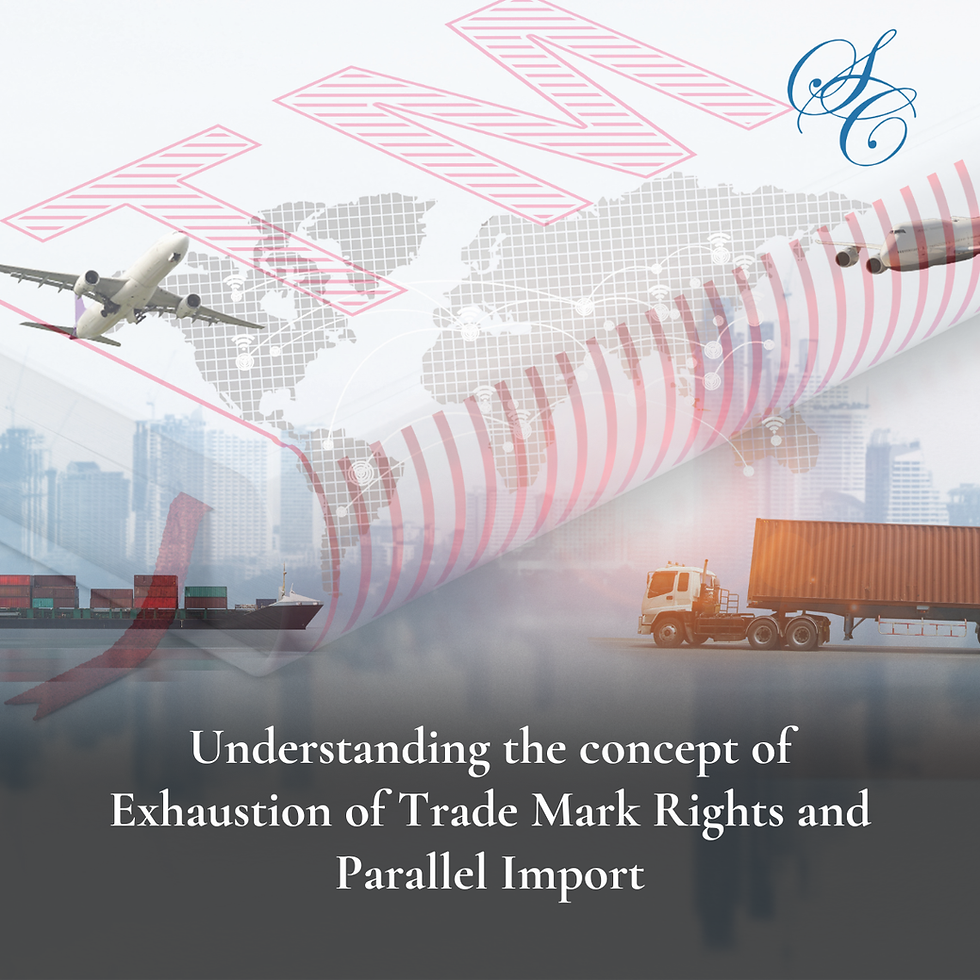Balancing commercial and research interests in a patent – The Delhi High Court’s judgment in Pfizer
- Sarwajeet Singh
- Jul 30, 2020
- 3 min read
Our Associate, Vishesh Kumar discusses “Balancing commercial and research interests in a patent – The Delhi High Court’s judgment in Pfizer Inc and Ors. v. Shivalik Rasayan Ltd”
Recently the Delhi High Court, in Pfizer Inc and Ors. v. Shivalik Rasayan Ltd.., granted an ad-interim injunction in favour of the plaintiffs restraining the defendant from making commercial use of the plaintiff’s drugs, namely Palbociclib, Sunitinib and Axitinib.
The plaintiffs, a multinational pharmaceutical giant, filed a suit against the defendant praying for an injunction and damages for infringement of patents for the drugs Palbociclib and Sunitinib. As far as position regarding Axitinib is concerned, the plaintiffs contended that the patent had expired. Consequently, the plaintiffs were only claiming damages for actions of the defendant. In support of its contentions, the plaintiffs filed documentary evidence, including screenshots from the defendant’s website.

The defendant contended that it had not made any commercial use of the patents. Use by the defendant was solely for research purposes.
The plaintiffs, refuting the above argument, contended that, as per the website of the defendant, approximately 250kgs of Palbociclib was exported out of the country. Such a huge quantity could not be strictly for research purposes. It was further argued that, assuming that the defendant did actually export the Active Pharmaceutical Ingredient (API) for research purposes, it would have to follow the regime laid down by the division bench of the Delhi High Court in Bayer Corporation. In this case, the Delhi High Court on laid down the following factors to determine whether use was reasonable and strictly for research purposes
(1) The patent granted;
(2) The nature of the product or elements sought to be exported;
(3) The details of the party or party importing the product;
(4) The quantity sought to be exported;
(5) Other particulars with respect to the end use of the product, to establish that it is solely for research and development of information to regulatory authorities in the other country;
(6) All particulars regarding the relevant regulations, covering the kind and scope of inquiry, including the quantities of the product (i.e., the patented product or compound, API or fine chemical needed);
(7) If the regulations are in a language other than English, an authentic English translation;
(8) Appropriate interim order, including undertaking by way of affidavit to compensate the plaintiff in the event the suit was to be decreed and the extent of such monetary compensation;
(9) If necessary, verification through the Indian mission (and its trade division) abroad regarding the authentication of the third party and/or its facilities abroad;
(10) If it is held by the court that the exporter is not involved in sale or export of any patented product, but a generic article, unprotected by patent law, when denying relief, suitable restitutionary relief should be awarded to the defendants in monetary terms, to preclude litigation that prevents trade or competition.
In view of the above, the Delhi High Court, restrained the defendant from making any commercial use of the APIs concerning the drugs of the plaintiffs. The Court held this to be a reasonable order since the defendant had already taken the stand that its use was not for commercial purposes.
Further, the Court held that if the defendant does wish to export the APIs for research purposes, it would need to follow the regime set forth in Bayer Corporation.
The judgment of the Delhi High Court not only follows the prior precedent, but is also an attempt by the Court to strike a balance between the commercial rights vested in the holder of a patent and the conditions contained in the Indian Patent Act which allow use of the patent for experiment or research. This is clearly in line with the intent of Indian patent law that intends to vest exclusive rights in a patent holder without compromising on further research and development on the subject matter of such patents.
Citation – PFIZER INC AND ORS v. SHIVALIK RASAYAN LIMITED – CS(COMM) 257/2020




Comments